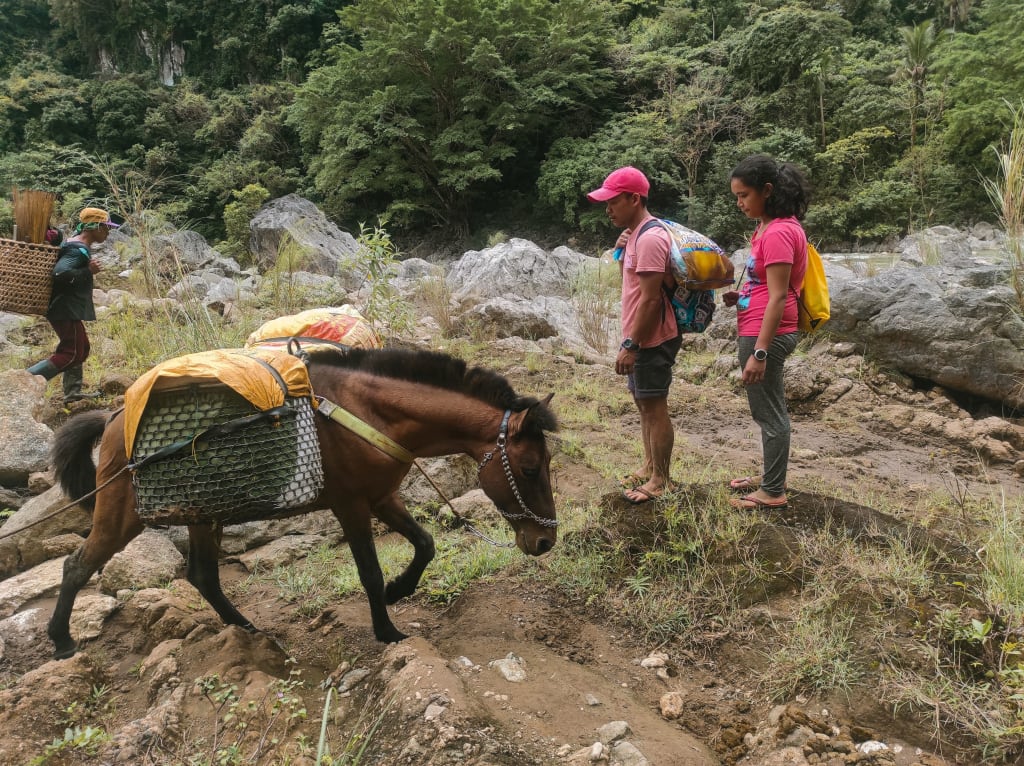Selective Development: The Ruthless Cost of Progress on Indigenous Groups
Do indigenous groups need to sacrifice for the benefit of selected people?

It was February 2023, over a year ago as of writing, when we visited an indigenous community in Tanay, Rizal, to conduct an investigative report, shedding light on both the construction of the Kaliwa Dam and the plight of the Dumagat-Remontado tribe, who faced severe repercussions because of this mega-dam project.
Proposed by the Manila Metropolitan Waterworks and Sewerage System (MWSS), the Kaliwa Dam aims to ensure water security and augment the raw water supply to meet the future potable water demands of Metro Manila, while simultaneously reducing reliance on the Angat Dam. Despite its intended benefits, the project has faced vehement condemnation from various progressive groups and environmental activists. They argue that the dam's construction would inflict massive harm on the ecosystem and biodiversity of the Sierra Madre, a mountain range that has historically served as a protective barrier shielding Luzon, including the capital, Manila, from the most severe impacts of Pacific Ocean typhoons. Adding to these concerns, the designated area was also a place of ancestral land for an indigenous community that has long inhabited the region. Consequently, the construction of the dam poses a threat to their community, forcing them into displacement to pave the way for the project.
Upon having a conversation with the Dumagat-Remontado community, they expressed awareness of the project. However, they conveyed that they have not received any plans detailing aspects like relocation and the compensation they are entitled to. This stands in stark contrast to the MWSS assertion that affected families would be offered resettlement costs and would be actively involved in all consultations and planning activities related to the dam.
This instance leads me to question why such projects persist even when they fail to provide clear solutions for each affected family. Additionally, why have indigenous communities usually been one of the targets for displacement in the pursuit of different projects?
Other indigenous communities in other locations have faced similar situations. In 2019, the New Clark City (NCC), a multi-billion-dollar project aspiring to serve as a leading example of sustainable urban development and aimed to address escalating environmental issues linked to climate change, threatening the displacement of over 65,000 individuals from 12 villages, including 18,000 indigenous people from the Aeta tribe who asserted that their land was seized to make way for the project. This mirrors the predicament of the Matigsalug and Lambangian tribes in Mindanao, who, on the other hand, are experiencing a gradual loss of ancestral territory as commercial logging, energy projects, and mining corporations have taken over the once-thriving ecological landscape, damaging mountains and forests to exploit the region's abundant gold, copper, and nickel resources.
As different administrations in the passed by, it became evident that various projects, whether initiated by the government or private corporations, frequently targeted indigenous communities who were susceptible to this kind of displacement issue. This vulnerability stems from the economic and political fragility inherent in their lifestyles, which rely on local ecosystems. This lifestyle sharply contrasts with the highly organized and politically structured nation-states, creating challenges for them in negotiating access to and control over their land.
The displacement of indigenous people is not solely a matter of relocating them to places they are not used to; it is also about separating them from their ancestral domain, where their ancestors once lived and passed away. While it may seem inconsequential to those who do not comprehend, this place holds immense significance for the tribe, encapsulating a wealth of memories and serving as a vital component of their collective identity as a group.
The construction of the Kaliwa Dam and other mega projects that affect indigenous people questions the real definition of development that those in power want us to know about. Is the progress they want to see truly unjust? Do other people on the pedestal need to sacrifice for the attainment of these projects that will only benefit selected people?
Everyone desires development, aspiring to attain a better quality of life through improved infrastructure and establishments that cater to their needs. However, achieving these advancements at the cost of displacing people and forcing them to surrender their land is inherently inequitable and devoid of basic humanity. These affected individuals are not mere numbers in a report; they are human beings in need of a comforting place— the very one they have called home since their youth, holding deep sentimental value that they cherish throughout their lives.
Each individual deserves the right to fair treatment, with no one left behind. Each individual should have the opportunity to reap the benefits of the so-called "development" the government envisions for the country. True progress is inclusive, where everyone, regardless of their status or group, is seen, heard, and receives attention.





Comments
There are no comments for this story
Be the first to respond and start the conversation.